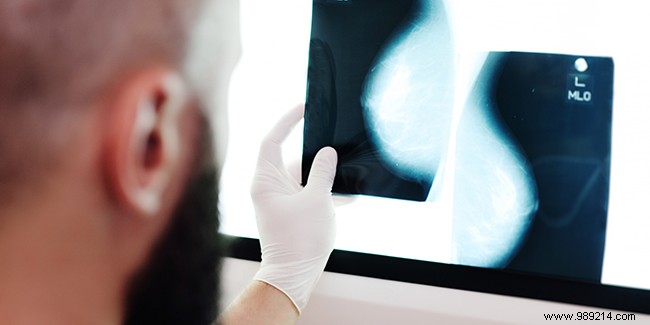
Breast cancer is the most common cancer in women and 80% occur after the age of 50 according to the National Cancer Institute. This is why regular screening from this age is recommended and implemented by the public authorities. A mammogram and a clinical breast examination are offered every two years to all women from the age of 50 as part of this nationally organized breast cancer screening. What is this screening and up to what age should it be carried out?
Even if it is not compulsory, all women from the age of 50 are invited to breast cancer screening every two years because the risk increases with age. You should also know that, detected early, breast cancer is cured in 9 out of 10 cases. This "organized screening", set up by the public authorities since 2004, is aimed at women up to show no symptoms or particular risks in relation to this disease. On the other hand, women of all ages who present a very high risk of breast cancer due in particular to a history, benefit from special clinical and radiological monitoring and are not concerned by organized screening for breast cancer.
The age of 50 was defined because, as indicated by the National Cancer Institute, 80% of breast cancers occur after this age. Before the age of 50, systematic screening for women who do not present any particular risk factor is not recommended. On the other hand, a clinical breast examination by palpation carried out regularly by a health professional is recommended from the age of 25.
Organized screening for women aged 50 to 74 consists of having a mammogram and a clinical examination performed by a certified radiologist. For safety, the mammogram is read a second time by a different radiologist, also certified. As part of the screening, these X-rays and examinations are 100% covered by health insurance and women do not have to pay up front.
After the age of 74, breast cancer screening is no longer systematically offered every 2 years because studies tend to prove that it no longer has maximum efficiency and sufficient benefits as between 50 and 74 years.
From the age of 74, the decision to be screened for breast cancer must be taken with your doctor, especially for women who present a high or very high level of cancer risk due to personal or family history (cancer breast, uterus and/or endometrium) or genetic predispositions. Moreover, regardless of their age, the latter benefit from specific follow-up and monitoring.
In addition to taking into account age, each woman represents a unique case vis-à-vis the risks of breast cancer. This is why general practitioners or gynecologists are the only ones who can determine the screening methods adapted to each of them, in particular once the age of systematic screening is exceeded. Thus, after the age of 74, women at risk for breast cancer may be offered to continue to carry out systematic screening. Depending on the case, a simple ultrasound or an MRI can subsist on a mammogram, or complement it.